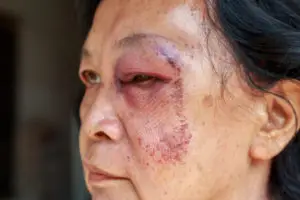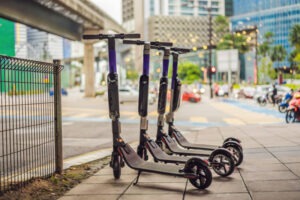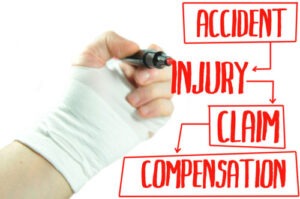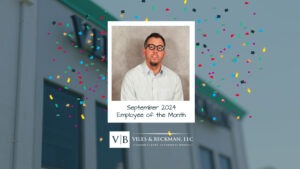
Florida has more senior citizens than any other state. It is vitally important for official programs and laws to aim to protect elders who reside at home, in assisted living facilities, or in nursing homes. Florida has more than 690 licensed nursing care facilities, which house approximately 85,000 beds. At any given time, these beds are at about 85 percent occupied.
Overall, Florida ranks high for the quality of nursing homes and Florida facilities are staffed above the national average. However, watching the local news or reading the local newspaper will reveal frequent cases of elder abuse in nursing homes. Additionally, residents and their families file thousands of complaints with the Department of Elder Affairs and the Department of Children and Families (DCF). Both are state agencies tasked with investigating accusations of elder abuse.
Choosing to put an elder you love in a nursing care facility is never an easy decision. Our loved ones deserve to be treated with the utmost respect. Nursing care facilities and their employees have a legal obligation to provide a standard of care. When those we trust to care for our elders fail to provide adequate care or act with intentional harm, the physical, emotional, and financial impacts can be devastating.
Past studies on elder abuse have focused on individuals who still can live at home. There has been much less dedication to studying abuse in nursing care facilities. Yet, a few studies suggest elder abuse in nursing homes is more common than we think because it is severely under-reported. While the causes of elder abuse aren’t widely understood, researchers have identified conditions that increase the likelihood of nursing home elder abuse.
This guide provides you with Florida’s legal definition of elder abuse. Following is an in-depth discussion of risk factors commonly associated with elder abuse in nursing care facilities. If you suspect an elder you love has been abused in a nursing home, you should report the abuse as soon as possible. Consult with a personal injury lawyer who can advise you on the best course of action for you and your family.
How Does Florida Define Elder Abuse?
Elder abuse is a broad umbrella term that refers to abuse, neglect, and exploitation of older adults, regardless of where they reside. Each of these terms has a specific legal significance that Florida law clearly defines.
Abuse of Elders
Florida law identifies three types of conduct that qualify as elder abuse. In the context of elders who reside at nursing care facilities, abusive conduct includes:
- Intentional physical or emotional harm to a resident
- Intentional acts that will likely cause physical or emotional harm to a resident
- Active encouragement or enabling of physical or emotional harm to a resident
Neglect of Elders
Neglecting elders occurs when a caregiver fails to provide a resident with the care necessary to maintain their physical and mental health. Some examples of a failure to provide adequate care, supervision, or needed services include:
- Withholding water and food, also not providing nutritious food
- Failure to provide clean and adequate clothing
- Failure to supervise residents
- Improper administration of medication
- Failure to administer medication
- Failure to report known-abuse or -neglect by another party
Exploitation of Elders
Although less common than neglect and abuse, financial abuse or exploitation can and does occur in nursing homes. Under Florida law, exploitation of an elder includes the following conduct:
- Acquiring or attempting to acquire or use a resident’s personal funds, assets or property or any person in a position of trust depriving an elder of their personal property
- Financial abuse such as fraud, mismanagement of assets, and embezzlement
- Abusing power of attorney
Expect More, Receive More: Legal Support That Feels Like Family
Specific Risk Factors That Increase the Risk of Elder Abuse
Although research about the causes of elder abuse is limited, practitioners and researchers agree on three common scenarios that lead to elder abuse. The scenarios are all closely related and include:
Stressful Working Conditions
Nursing care facility employees may endure stressful working conditions for a variety of reasons. The majority of the issues stem from the under-staffing of shifts. Even though Florida has a higher rating of staff than the national average, some facilities struggle to maintain quality caregivers and full staffing levels. According to PayScale, the average hourly wage for a Florida certified nursing assistant (CNA), who provides most of the care to residents, is $11.53 per hour. Annual wages at a CNA’s hourly rate barely exceed the federal poverty level.
Low wages and hard work motivate many CNAs to learn new skills or continue their education to prepare for better-paying jobs within the medical field. When a nursing home is short-staffed, CNAs work environment can become increasingly stressful. Often, they are required to cover open shifts, work mandatory overtime, and take on more duties while at work. The combined economic stress coupled with added responsibility creates stressful working conditions. Overworked and not paid well to take out their frustration on residents, or to neglect residents because they struggle to complete all the tasks that constitute adequate care.
Staff Burnout
Weeks, months, and years of staffing shortages, forced overtime, increased duties without increased pay, and working extra hours can lead to staff burnout. In any job or career, employees can suffer burnout, but it doesn’t always impact other people. Yet, when nursing assistants, nurses, and other caregivers in nursing homes suffer burnout, the consequences can be severe and sometimes fatal.
The vast majority of nursing care assistants are good people that wouldn’t intentionally abuse the elders we love. Yet, frustrated caregivers might be excessively crabby and take out their emotions on residents, verbally and/or physically. It is more common, however, that caregivers who suffer burnout neglect nursing home residents.
Whatever the Reasons, the Results of Abuse or Neglect Count
Unintentional neglect still makes a nursing home liable for damages and can result in severe injuries, sometimes fatalities. Elders are already more at risk for unintentional falls or slip and fall accidents than other age groups, but nursing home neglect increases that risk. The Centers for Disease Control and Prevention (CDC) estimates that about 20 percent of all fall injuries result in at least one broken bone or a head injury. Burned out caregivers are less likely to provide supervision needed to help residents avoid slip and fall injuries.
Some examples of how neglect might lead to a dangerous slip and fall accident include:
- A resident pushes his or her call button for assistance to the bathroom. When staff does not respond, the resident goes it alone and falls.
- Staff leaves a resident unattended in the bathroom and he or she tries to leave or reach for their wheelchair and falls.
- Staff leaves a resident unattended in the shower and he or she slips and falls when trying to move around.
- Staff doesn’t quickly clean up spills, putting all residents in danger for a slip and fall accident.
- Staff leaves bedding, grooming items, or other things lying around a resident’s room that might lead to a slip and fall.
- Staff doesn’t regularly empty catheter bags, which can cause leaks posing danger for slip and fall accidents.
Most data about elder abuse in nursing homes across the United States comes from nurses’ aid registries. Those who manage registries in each state and some federal agencies have studied elder abuse. The U.S. Department of Health and Human Services, the United States General Accounting Office, the United States Office of the Inspector General for the Department of Health, and the United States Senate Special Committee on Aging agree that staffing shortages remain the leading cause of abuse and neglect in nursing homes.
Improper Training
Another consequence of staffing shortages is improper training, which can lead to a wide variety of accidents in nursing homes, including slip and fall accidents. In some cases, new nursing assistants get thrown to the wolves to help out without getting proper guidance on resident care. When a new employee, especially one who has little to no experience as a CNA, doesn’t learn proper lifting techniques or has too much work piled on them too soon, accidents can happen.
Florida law requires nursing care facilities to create a written plan and train all their staff on resident rights. Additionally, nursing homes must train employees on how to properly care for and address the needs of residents who suffer from dementia and Alzheimer’s disease. Other training Florida nursing homes have the legal obligation to provide their staff include:
- How to identify residents who might be at risk for bed sores
- How to address the needs of residents with special nutrition requirements
- How to make sure residents get enough liquids
Not only do these types of additional training make sure residents are comfortable, but it can help ensure residents are protected from abuse and neglect. When staff members aren’t reminded or educated about crucial aspects of patient care, it’s easy for them to unintentionally neglect patients, causing injury.
Signs a Nursing Home is at High Risk for Elder Abuse
If an elder you love is residing in a nursing home, things might appear fine on the surface. Yet, you always need to keep your eyes and ears open when you are visiting. You can look for individual signs of abuse or neglect, but many can be difficult to detect, especially if your loved one is fearful about telling you.
Instead, you can ask about a facility’s internal policies and procedures, which will give you a good idea about whether a facility is properly training employees and whether or not caregivers are burned out from working under stressful conditions.
Some things you can look for include:
- An assigned nurse risk manager. Sometimes a resident’s treatment plan doesn’t go the way it is supposed to. A nurse risk manager assesses the physical and financial issues related to the resident and the facility and acts as a liaison between residents and their families concerning negative outcomes. The risk manager also monitors residents’ medical records and acts as an advocate. Facilities without risk managers are likely not too concerned about outcomes and proper training; they are just filling positions with warm bodies.
- Policies for addressing safety and health concerns. Nursing care facilities who prioritize the health and safety of their residents have internal procedures for staff and residents to report and address concerns about health and safety without repercussions. This can include safety meetings for staff and for residents, or joint meetings to talk about issues and create plans to fix them.
- An incident reporting system. When an accident, injury, instance of abuse, or indication of abuse occurs, residents and employees need the ability to report these incidents. Not only should a reporting system track these incidents, but it can be a starting off point for investigating them internally. Nursing homes without incident reporting systems enable neglect and abuse. It’s in these situations where residents and families file a complaint with the state. When facilities take it upon themselves to monitor and investigate incidents internally, they are likely training their staff well.
Nursing care facilities are a necessary option for many families as their loved ones age. Many facilities and caregivers, especially in Florida, treat residents with the dignity they deserve and give them proper attention so they don’t suffer from slip and fall accidents, malnutrition, dehydration, bedsores, and other maladies that might occur when a facility isn’t staffed properly or their staff isn’t trained properly. Yet, some facilities are subpar and remain hotbeds for accidents, injuries, unexplained bruises, broken bones, and overall poor resident care.
If you suspect an elder you love has been neglected or abused in the nursing care facility where he or she resides, you need to take action as soon as possible to protect your loved one, and protect others from future malfeasance. A compassionate and skilled elder abuse attorney can advise you as to the best course of action for you and your family.
Call or text (239) 334-3933 or complete a Free Case Evaluation form





